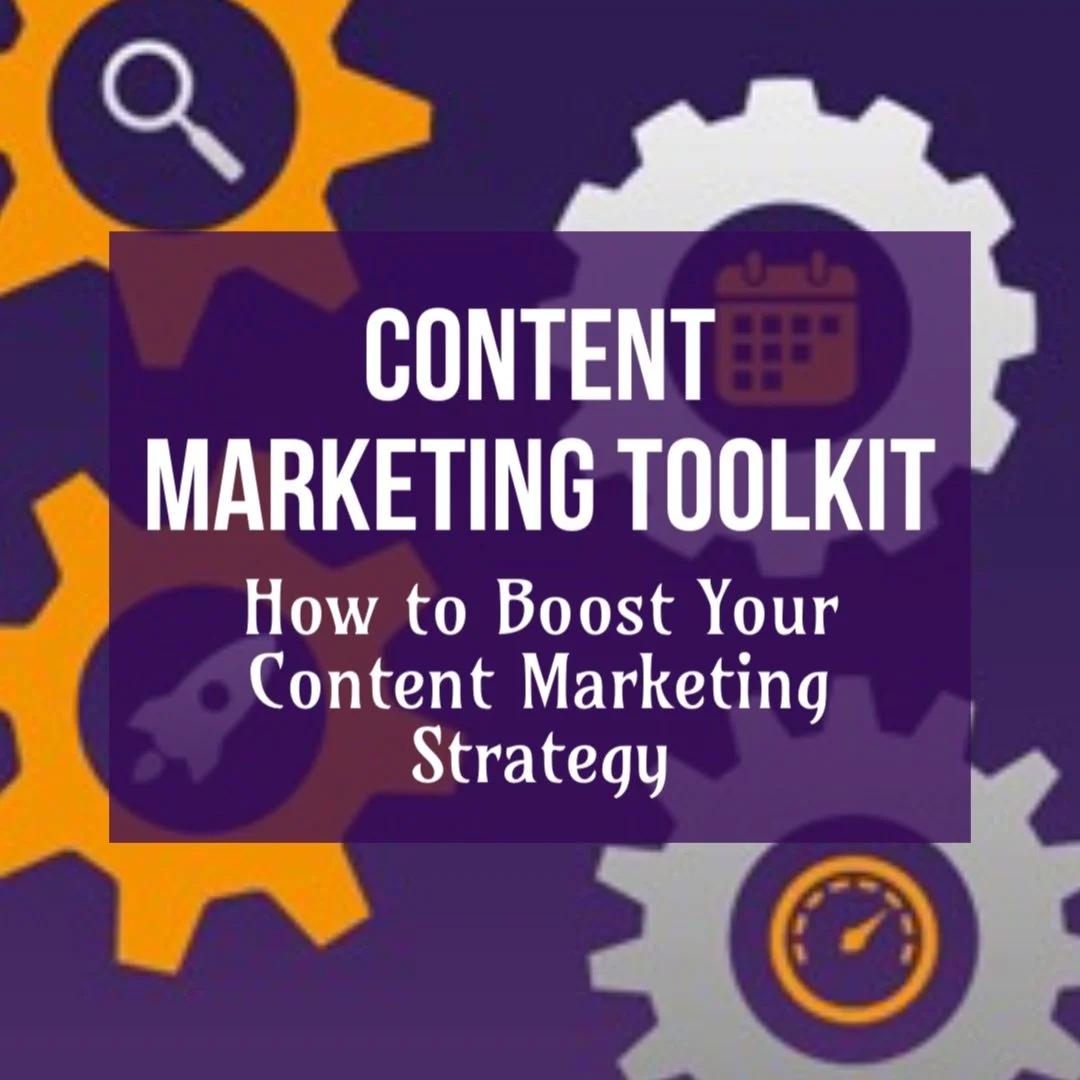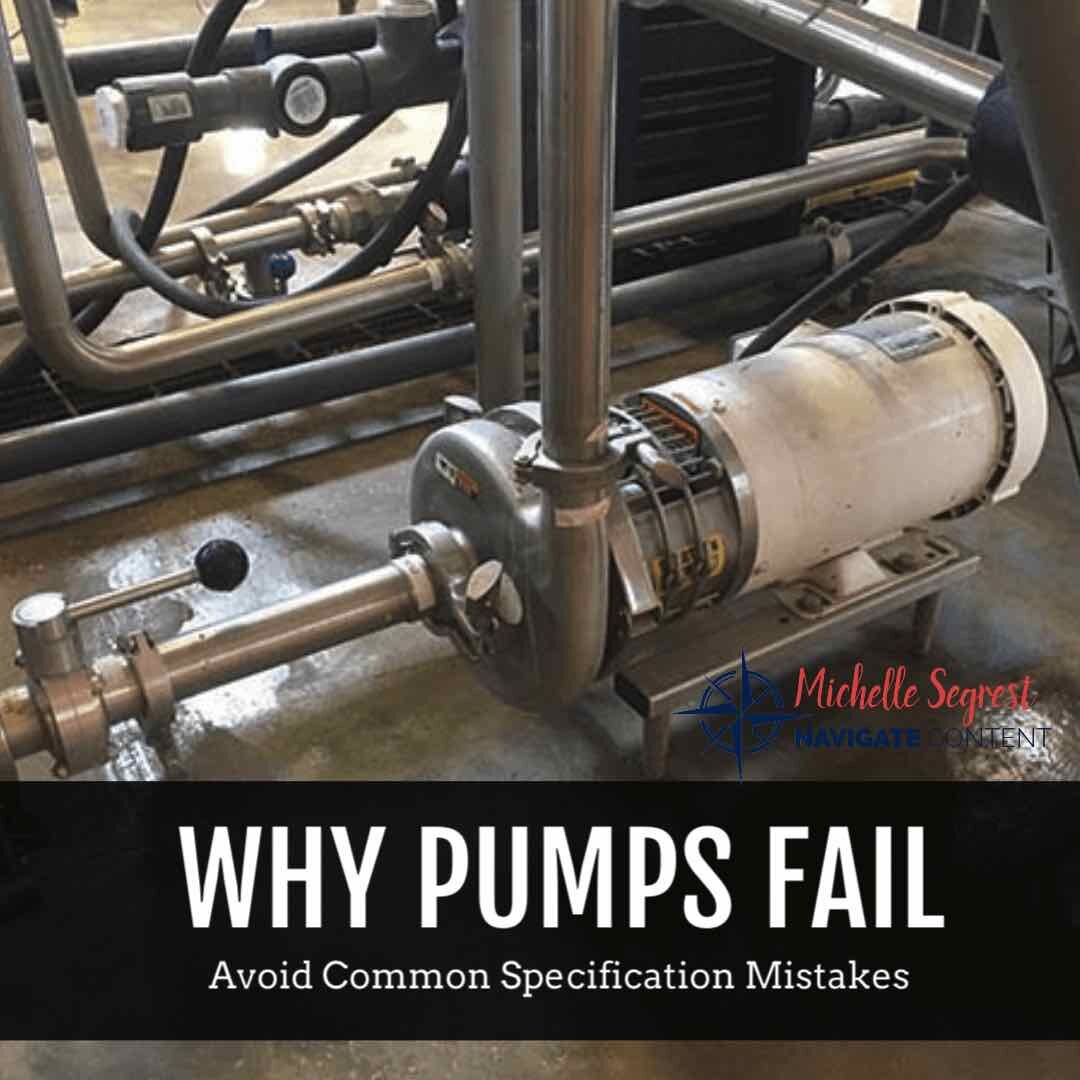What is Content Marketing? How To Sell it to Management?
/As traditional marketing becomes less desirable and ineffective, successful marketers are turning to the power of content marketing to drive brand awareness and profits. This article defines content marketing and shows you how to leverage its power to clearly promote your authority as a thought leader in your industry.
By Michelle Segrest, Navigate Content Marketing
Every company has a story to tell, whether it is about their products, unique manufacturing processes, or how using their products in specific applications has solved their clients’ problems. Everyone loves a great story!
In 1996, Microsoft founder Bill Gates coined the phrase “Content is king,” describing the future of the internet as a marketplace for valuable content. This is possibly even more true today. In an ultra-competitive landscape, consumers of technical products want to know more than just the specifications and capacity of the products they need for various applications. They want to know what product will solve their problem, and they will pay anything to find the answer.
The more valuable information a company can provide, the more the company will be viewed as an expert and a thought leader and, therefore, gain the trust of their market and their audience.
What You’ll Learn
A clear definition of content marketing rooted in purpose, not buzzwords.
How to communicate ROI using metrics decision-makers understand and trust.
Proven ways to build buy-in when leadership wants evidence, not marketing theory.
Content marketing is the strongest and hardest possible soft sell. You can strongly promote products and ideas by simply telling the story of how your product or service solved a problem for your customers. Real-world examples have power and add legitimacy to your message.
The notion of marketing to customers by interrupting them repeatedly with advertising or other intrusive messages simply doesn’t work anymore, and, frankly, it’s selling your brand short.
Having an effective content marketing strategy can set you apart. It can turn browsers into buyers. It can convert customers into fans and advocates. If you want to take a deep dive into building a strategy and leveraging content, check out Chapter 6 of our book How to Creatively Market a Technical Product. But for now, let’s start with the basics.
What Is Content Marketing?
Content marketing has many definitions and interpretations, but simply stated, content marketing involves the creation and sharing of valuable messages using all types of material (including written articles, case studies, online blogs, videos, podcasts, webcasts, social media posts, ebooks, and emails). Rather than explicitly promoting a brand with advertisements, content marketing entices the consumer by stimulating interest in a particular product or service through a cohesive and insightful message.
Content marketing steers clear of heavy technical specifications, although it may demonstrate the multiple benefits and advantages of a product and may describe in great detail how the product works.
Content marketing delivers clear, cohesive, and concise messages to a very targeted audience. The same message can be delivered in a variety of ways through various mediums, platforms, and channels.
Content marketing is subtle, but it delivers a powerful punch without using hard-selling techniques. It is an advertisement for your products and services that doesn’t feel like an advertisement to the consumer. You are sharing valuable information with the exact audience who needs it.
Content marketing is all about storytelling. Humans have been telling stories since the beginning of time. However, what worked 20 years ago to market a technical product may not work in today’s digital environment. Companies must progress and embrace contemporary marketing strategies and practices to keep up with the pace of modern technology and communication.
Simply put, content marketing should include high-quality content delivered on a consistent basis to a highly targeted and specific audience. This will establish a customer relationship with potential buyers you didn’t even know existed.
For content marketing to be truly effective, it is critical to develop a long-term strategy. This is discussed in great detail in Chapter 6 of How to Creatively Market a Technical Product.
How to Convince the Management Team That Content Marketing Works
Measuring the return on investment of content marketing is tricky. Some companies create their own content, but others must invest in outside firms to produce the kind of content that gets results. This costs money. Showing the effectiveness of that investment can be as difficult as brand awareness advertising. How do you know if it’s working?
The first step toward convincing your management team to make this investment is all in the pitch.
1. Frame your pitch to emphasize the benefits of content marketing.
Focus on the benefits of:
Brand awareness
Thought leadership
Building your audience
Revenue potential
Profitability
2. Show the track record of content marketing.
Content marketing has been used by large and small companies in nearly every industry with success. Research shows that content marketing produces three times more leads than paid search advertising. According to reports, 47% of buyers viewed 3-5 pieces of content before engaging with a sales rep.
No one is going to speak with a sales rep before it’s absolutely necessary in today’s market because they no longer have to. If you can provide the answers to your potential customers’ questions before they even ask you, you will become the subject matter expert and win their confidence and respect. This helps to grease the wheel of the buying process substantially.
Check out 155 Marketing Statistics to Consider Going into 2021 to find all kinds of facts and figures that will emphasize the effectiveness of content marketing.
3. Show examples of how content marketing works in your industry.
Nothing gets the attention of upper management more than seeing the success of their competitors. Show management what kind of content your competitors are producing, and then demonstrate to them how you can do it better.
Of course, if you can get the upper hand and begin producing valuable content before your competitors catch on, even better! Show management effective campaigns being used in other industries and show how these ideas can translate to your industry and audience.
Find case studies of other companies in your industry who are effectively using content marketing. Reach out to agencies who have clients in your industry and who have successful content marketing campaigns, and work with them to build a strategy for your company. Agencies can show you examples and provide real data that will get the attention of management.
4. Minimize the risk.
Overall content marketing strategies are necessary, but they can seem overwhelming to management. Focus on easy wins like social media posts and informative blogs to get the content ball rolling. Once you have created a foundation and can show results, you can then allow your overall program to snowball and grow.
5. Define some benchmark statistics and create easy-to-accomplish key performance indicators (KPIs) that can quickly and clearly show success.
Every management team wants to be able to track and measure results, so let them know this is part of the plan. KPIs can include everything from numbers of social media posts to numbers of followers, numbers of clicks or shares, website visits, and article engagement to actual sales tracking. Make sure your KPIs are reasonable and achievable and that they paint the right picture to allow management to see success.
Content marketing should form a part of a company’s overall marketing funnel. Be sure to build your content marketing to work within the confines of your business and toward specific metrics and avoid using content marketing in isolation.
This article is just a simple introduction to content marketing. For much more on content marketing, building a content strategy, identifying and leveraging your audience, and use new digital media with an omnichannel approach to your technical product marketing, please read the number one resource on creatively marketing technical products.
Key Takeaways
Content marketing works best when aligned with sales goals and measurable outcomes.
Executives respond to data, case studies, and projections — not creative jargon.
If you frame content as revenue enablement, approval becomes much easier.
Michelle Segrest is President of Navigate Content, Inc., a full-service content creation firm. She has been a professional journalist and content creator since 1989. She is the co-author of How to Creatively Market a Technical Product, and the author of the Modern Manufacturing Complete Series. Contact her at michelle@navigatecontent.com
If you like this article about how to get started with content marketing, please PIN IT!
This page contains affiliate links. If you click on the product links and make a purchase, it allows me to make a small commission at no extra cost to you! Thank you for your support and I hope you find value in this content!



































